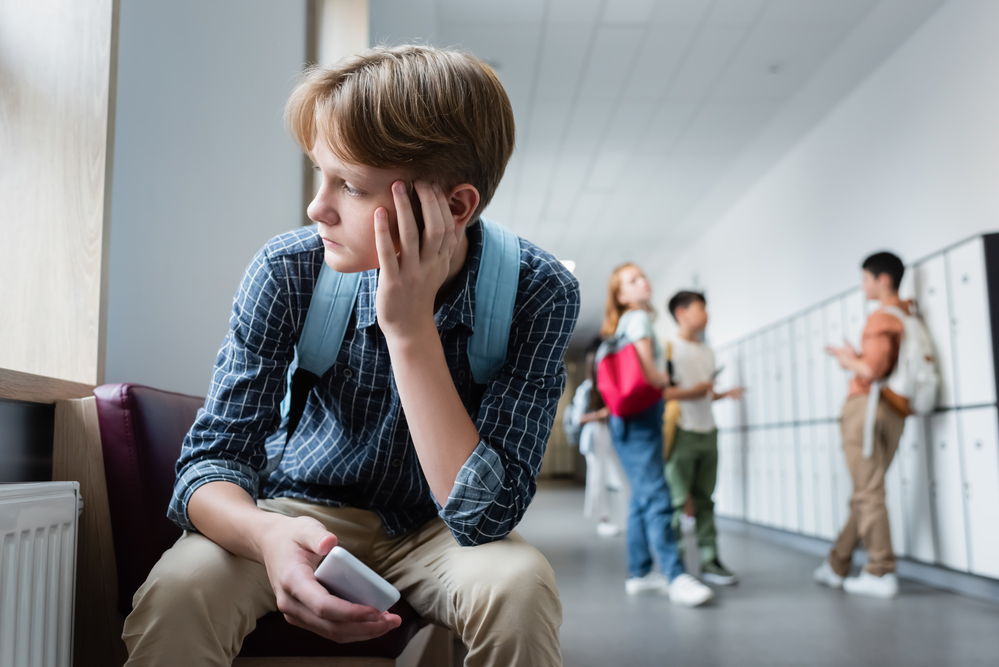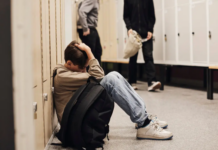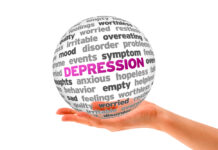A new study found that a universal mental health intervention delivered in schools worsened kids’ mental health on one measure, and did not improve anxiety or depression. The intervention, Climate Schools, was delivered in 18 schools, while another 19 schools served as the “control” group that did not receive the intervention. Over 3000 Australian 9th and 10th graders were included in the study.
The primary outcome measured by the researchers was “internalizing problems.” Kids who received the intervention scored worse at the 6- and 12-month mark after the intervention, on average, than kids who did not receive the intervention. (By the 18-month mark, there was no difference between the groups.)
“Relative to baseline, and compared with controls, we found that students in the Climate Schools-mental health condition had higher internalizing scores at 6- and 12-months post-intervention,” the researchers write.
 The kids who received the intervention reported higher “mental health knowledge” afterward—which the researchers note may indicate that increasing awareness of “mental health” actually worsens it.
The kids who received the intervention reported higher “mental health knowledge” afterward—which the researchers note may indicate that increasing awareness of “mental health” actually worsens it.
On the secondary outcomes of depression and anxiety, there was no difference between the groups (meaning that the intervention had no effect). Depression and anxiety increased significantly over time for both groups of kids.
The researchers also assessed overall “psychological distress” and again found no difference between kids who received the intervention and those who did not.
In short, they write, “We found evidence that our standalone mental health intervention improved knowledge of mental health, however there was no evidence that the intervention improved other mental health outcomes, relative to a control.”
(Internalizing problems were measured using the emotional problems and peer problems subscales on the Strengths and Difficulties Questionnaire. Depression and anxiety were measured using the Patient Health Questionnaire-8 (PHQ-8) and the Generalized Anxiety Disorder scale (GAD-7), respectively. Psychological distress was measured using the six-item K6.)
The researchers also wondered if social connectedness could play a role—that is, might those kids who were more socially active have better mental health or possibly receive more benefit from the intervention? But the researchers found no effect of social connectedness on any of their measures. (To measure this, the researchers asked the kids to write down the names of three friends; kids who were listed more often were deemed more socially connected.)
The study was led by Jack L. Andrews at the University of New South Wales and published in Psychological Medicine.
The Climate Schools mental health intervention is billed as being based on cognitive-behavioral therapy and consists of six 40-minute class sessions. It is specifically intended to reduce anxiety and depression. It was delivered in addition to the schools’ regular health classes, which already include a mandatory mental health component.
The researchers acknowledge that previous studies have also found that this type of universal mental health curriculum for kids is ineffective at best. They write,
“Our results sit within a growing body of work indicating the limited efficacy of universal interventions for adolescents in reducing anxiety and depression. For example, two systematic reviews focusing on the effectiveness of cognitive behavioral therapy (CBT)-informed resilience interventions for young people found no benefits for depression or anxiety symptoms post-intervention.”
They add that mental health interventions that target kids who are specifically at-risk for poor mental health might be more effective, but that there is limited evidence to support that assumption. In fact, they cite evidence that targeted interventions might actually increase bullying and stigma toward the included at-risk kids.
These massive interventions may be rolled out with the best of intentions, but that doesn’t mean they are effective. For instance, the D.A.R.E. program, carried out in schools across the United States for decades in an attempt to reduce drug use in youth, has been reassessed as a complete failure—a waste of billions of taxpayer dollars.
****
Andrews, J. L., Birrell, L., Chapman, C., Teesson, M., Newton, N., Allsop, S., . . . & Slade, T. (2022). Evaluating the effectiveness of a universal eHealth school-based prevention programme for depression and anxiety, and the moderating role of friendship network characteristics. Psychological Medicine. Published online on July 15, 2022. https://doi.org/10.1017/S0033291722002033 (Link)















Yup, if you tell people there anxiety is a MH problem and not due to some frightening circumstances they tend to dwell on it and feel worse instead of figuring out the causes and if possible addressing them.
Report comment
On the whole, the best thing for most childrens’ mental health is to let children be children. The other best thing is to recognize each one of them as a very worthwhile individual. The other other best thing is for all those involved with children to lessen the adults’ obsession with weaknesses and failures and concentrate more on the successes and strengths. Even to this day, I am amazed about how much energy, my math teacher put into making the “x’s” next to my wrong answers and completely ignoring the very few right answers I had, although I worked harder than many in the class to obtain those few right answers. When I asked why she thought telling me how rotten I was at math by emphasizing my incorrect answers through those great big red “x’s” on my paper, she looked at me and basically said, “How dare you question me? I’m the teacher and it’s more important to point out your mistakes than your right answers.” In my opinion, if we want to improve “mental health” we really need to stop obsessing about the weaknesses shortcomings, etc. of our children and ourselves, too. As a society and culture, we are so hung up with what we do wrong, that we are so programmed, if you ask someone about their successes, they will begin with their failures. Additionally, if you ask someone what they want in life, they will probably start with what they don’t want. We are a culture focused on the negative. Until we change our focus, we will not be truly successful in anything and good people will suffer needlessly, as many do now; children and adults. Thank you.
Report comment
I love what you had to say about schools. When I was a teacher, I used to use a GREEN pen, and marked the questions the kids got CORRECT.
Report comment
Things get even more screwed up if people are made to think something’s wrong WITH THEM. And this is especially true for youngsters who internalize the messages adults give them. And it’s an invasion of privacy to single kids out for something as personal as their feelings, as a group or individually. It just makes them inappropriately self-conscious and targets for teasing/bullying. If you want to help kids, don’t single them out by forcing them to take a course or talk unless they chose to. Just post signs saying private counseling is available.
Report comment
”
universal mental health intervention delivered in schools worsened kids’ mental health on one measure
”
This study is unethical and the results should not be published. No one should ever tolerate having their “mental health” accessed.
Joshua
Report comment